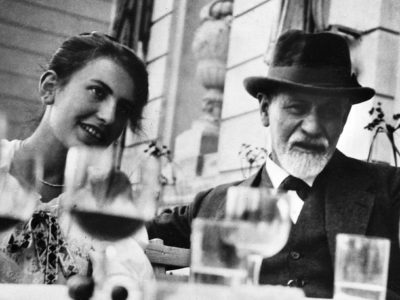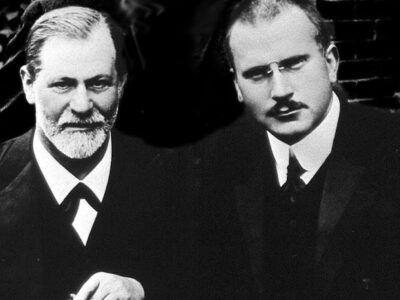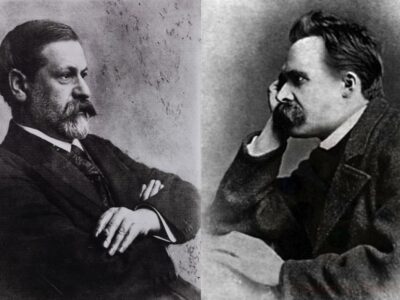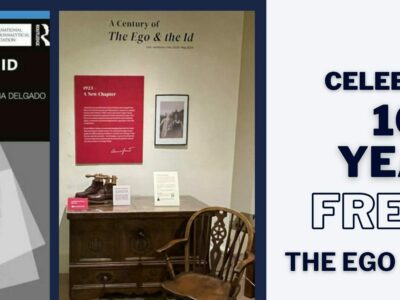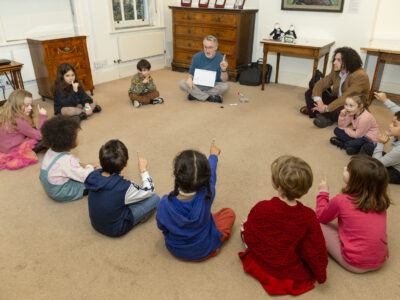
- This event has passed.
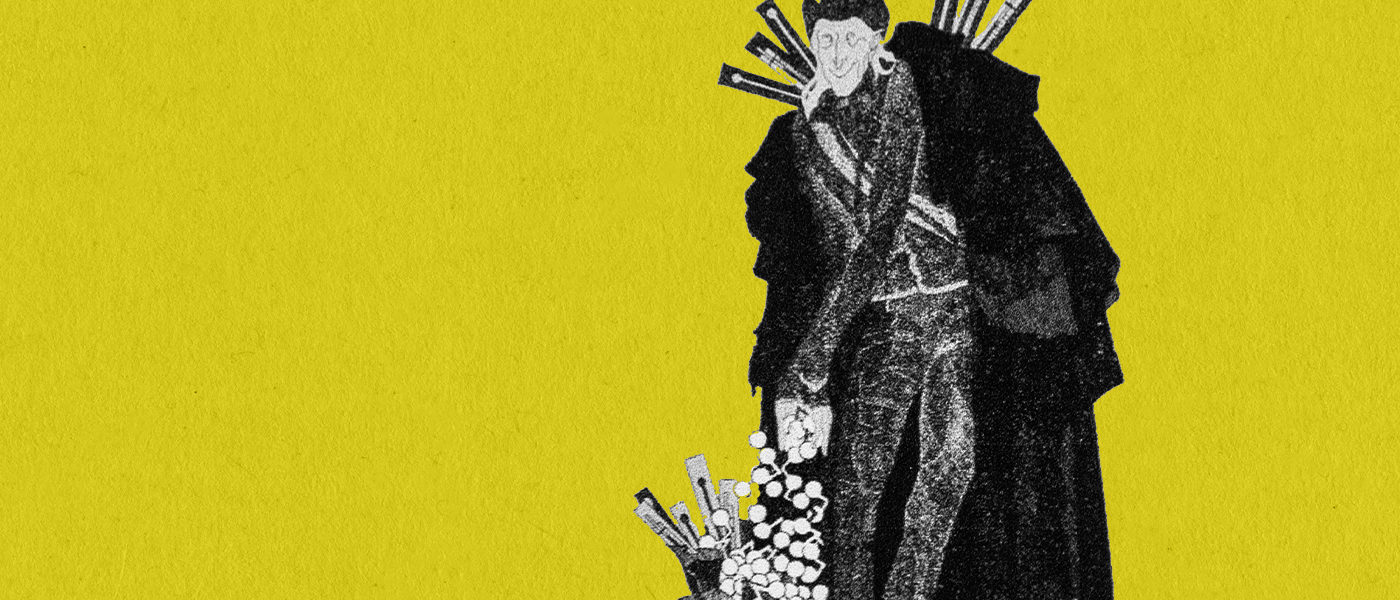
It is related to dread, horror, repulsion and distress. But what is the uncanny and why is it so significant today?
Freud’s investigation into the uncanny has been influential in literature, film, art and philosophy. It can also help us think about political culture and the therapeutic situation itself. This multi-disciplinary conference investigates Freud’s infuriatingly complex and contradictory paper and asks how it can help us understand contemporary dilemmas in art, culture, politics and psychotherapy.
Programme Timetable
Gregorio Kohon
The Uncanny: Psychoanalysis and the Aesthetic Experience – The Compulsion to Repeat
Psychoanalysis and the aesthetic both share the task of making representation of the unrepresentable but they are separated by their own individual and contrasting ways of making the attempt. Art and literature have the capacity to create something unfamiliar within the familiar reality; psychoanalysis reveals and identifies the unfamiliar already present in the apparent “familiar” reality. Drawing on my book Reflections on the Aesthetic Experience – Psychoanalysis and the Uncanny (Routledge, 2016), where I suggested a commonality of experience between psychoanalysis and aesthetics, I will explore in this lecture the work of the Spanish artist Eduardo Chillida, among others. His sculptures, steeped in the ambiguity of the uncanny, challenge the viewer to actively engage with the questions of time and space, presence and absence, form and void, internal and external. In this context, references will be made to the compulsion to repeat.
Forbes Morlock
Ghost Writing
A look at the uncanniness of Freud’s essay “The Uncanny” in the light of some of its contexts—the aftermath of the War, the drafting of Beyond the Pleasure Principle, and Freud’s belief in the predicted date of his own death—will lead into a consideration of the place of the paper in the psychoanalytic canon.
Nicholas Royle
Dream Freud
This paper reads ‘The Uncanny’ as a text that, perhaps more succinctly and movingly than any other work by Freud, gives readers a ‘dream Freud’, and thus offers an especially dynamic way of understanding Michel Foucault’s contention that Freud is not so much an author as a ‘founder of discursivity’. Drawing on the work of Maurice Blanchot, Hélène Cixous and others, the paper will explore the uncanny as a concept that continues to orient our understanding not only of psychoanalysis and literature, but also of the world around us.
Martin Bladh and Karolina Urbaniak
The Sandmann (Animated film, 12.10 minutes)
Film Screening and Introduction
T. A. Hoffmann’s short story ‘The Sandman’ (1816), despite being over two hundred years old, still grips and fascinates its readers. In 1919 Sigmund Freud put this curious tale at the heart of his essay ‘The Uncanny’ in which he analysed its narrative through themes such as doppelgangers, fear of death, castration anxiety, the evil eye, automatons, return of the repressed and repetition. Through a Freudian lens, this multimedia work, written by Martin Bladh and produced by Karolina Urbaniak, retells Hoffmann’s story in a poetic and symbolic way, exploring the unconscious and conscious forces at work.
Agnieszka Piotrowska
Film, Object, and the Horror of a Doppelgänger
Freud’s seminal article ‘The Uncanny’ focuses on the feeling of strangeness that pervades the everyday, a feeling that derives from a fusion of the self and its doppelgänger (via reflections and mirrors), the animate and inanimate, the human and non-human, the living and the dead. Freud interprets E. T. A. Hoffmann’s short story ‘The Sandman’ (1816) as an exploration of a fear of ‘being robbed of one’s eyes’. In this talk I will also focus on the visual register by presenting some contemporary examples of the uncanny in cinema, including Omer Fast’s acclaimed film 5000 Feet is Best and my own documentary film Married to the Eiffel Tower, in which the strangeness lies in the familiar and often iconic inanimate non-living objects (such as The Golden Gate Bridge or The Eiffel Tower) adopting a different role, that of a lover.
Alexandra Kokoli
A Footnote on Nightmares: Feminism and the Uncanny
The paper offers a feminist framing of Freud’s concept of the uncanny by focusing on the margins of his writing, specifically his footnotes. In the year of the publication of his essay ‘The “Uncanny”’, Freud added a footnote on nightmares in The Interpretation of Dreams which contradicts the idea that fairy tales may be unworldly but not uncanny, as he noted in his eponymous essay. Through a close reading of the ‘familiar’ fairy tale about a grumpy married couple that he uses to demonstrate how wish fulfilment fails in nightmares, I argue that Freud eloquently – if not altogether consciously – indicts the institution of marriage and heteronormative living arrangements in ways that resonate in anti-psychiatry as well as feminist psychoanalytic theory and practice.
June Campbell
There’s No Place Like Home
In clinical practice it is not infrequent for manifestations of difficult states of mind to be experienced as both uncanny yet extremely familiar. Amongst homeless people, and people who have suffered early bodily abuse, an incapacity to dwell at ease, or to feel ‘at home’ either in buildings, or within their own bodies, can be uncannily enacted in strange and frightening ways. With the use of clinical examples, June M Campbell will discuss the importance of Freud’s concept of the uncanny in work with ‘unhoused’ states of mind, and as it relates to the maternal body, thinking, and the bodily occupation of space.
Carol Leader
The Theatre of the Uncanny: Notes from the Consulting Room
Theatre tells timeless stories – often ones that are compelling, mysterious and uncanny: stories intended to be memorable. The audience is then needed to complete the shared theatre experience. In the consulting room the therapist is not only required as audience, but often as an unknowing actor in the patients unconscious narrative – especially in those uncanny aspects of the drama that appear as haunting presences. These ‘ghosts’ having made their impact, can all too quickly disappear from sight.
Using her experience as a former professional actor and case material from her current clinical work, Carol Leader will explore the dramatic and repetitive nature of the uncanny. She will consider the sublime and horrific nature of primal emotional life, where ego functions are overwhelmed or absent.
Speakers’ Biographies
Gregorio Kohon is a Training Analyst of the British Psychoanalytical Society. He moved to
England in 1970 to study and work with R. D. Laing and the anti-Psychiatry movement. Later,
he trained as a psychoanalyst, qualifying in 1979. From early 1988 to December 1994, he
lived in Australia, where he co-founded (with Valli Shaio Kohon) and directed The Brisbane
Centre for Psychoanalytic Studies. He edited The British School of Psychoanalysis: The
Independent Tradition (1986); The Dead Mother: The Work of André Green (1999); The
Greening of Psychoanalysis: André Green’s New Paradigm in Contemporary Theory and
Practice (2017), with Rosine Perelberg, and British Psychoanalysis – New Perspective in the
Independent Tradition (2018). He is the author of No Lost Certainties to Be Recovered
(1999); Love and Its Vicissitudes (co-authored with André Green, 2005), and Reflections on
the Aesthetic Experience: Psychoanalysis and the Uncanny (2016). His latest book is
Concerning the Nature of Psychoanalysis – The Persistence of a Paradoxical Dialogue (2019).
His novel Papagayo Rojo, Pata de Palo [Red Parrot, Wooden Leg, published by Karnac]
(2007/2008) was a finalist in the 2001 Fernando Lara Prize. He published four books of
poetry in Spanish, and in 2015, he co-authored a collection of short stories, Truco Gallo. He
participated in many anthologies of Argentinian literature, the latest being Argentina Beat
(2016). He works in London in private practice.
Forbes Morlock teaches in the English department at Syracuse University London, where he
led a seminar on “Freud, Fiction, and the Uncanny” for more than a decade. He publishes
regularly on Freud’s writings. As part of the its current programme, Forbes will be giving a
one-day intensive course on “Freud and the Uncanny” at the Freud Museum on February
1st, 2020.
Nicholas Royle has been Professor of English at the University of Sussex since 1999. He is
author of two novels, Quilt (2010) and An English Guide to Birdwatching (2017), as well as
works of criticism and theory including Telepathy and Literature: Essays on the Reading
Mind (1991), The Uncanny (2003), Veering: A Theory of Literature (2012), and Hélène Cixous:
Dreamer, Realist, Analyst, Writing (2020). With Andrew Bennett he has also co-authored the
Introduction to Literature, Criticism and Theory (5th edition, 2016) and This Thing Called
Literature (2015). He is currently completing a memoir of his mother.
Karolina Urbaniak is a multimedia artist working with photography, film, sound design, and
co-founder of independent publishing house Infinity Land Press. Her selected recent
publications include Altered Balance – A Tribute to Coil, Artaud 1937 Apocalypse, Death
Mort Tod – A European Book of the Dead and audio/visual project On The New Revelations of
Being inspired by the work of Antonin Artaud. She lives and works in London.
https://karolinaurbaniak.com/
Martin Bladh is a Swedish-born artist of multiple mediums, a founding member of the postindustrial band IRM, the musical avant-garde unit Skin Area and co-founder of the
publishing company Infinity Land Press. His published work includes To Putrefaction, Qualis
Artifex Pereo, DES, The Rorschach Text, The Hurtin’ Club, Darkleaks – The Ripper Genome and
Marty Page. He lives and works in London. http://www.martinbladh.com/
Agnieszka Piotrowska is an award-winning filmmaker and theorist. She is one of the
founding scholars at the British Psychoanalytic Council. She is best known for her
documentary Married to the Eiffel Tower (2008). Her current work focuses on asymmetrical
relationships, including gender and post-colonial settings. She is the author of
Psychoanalysis and Ethics in Documentary Film (2014), Black and White: Cinema, Politics and
the Arts in Zimbabwe (2016), The Nasty Woman and the New Femme Fatale in
Contemporary Cinema (2019) and the editor of Embodied Encounters: New Approaches to
Psychoanalysis and Cinema (2015), co-editor of Psychoanalysis and the Unrepresentable
(2016), and of Femininity and Psychoanalysis (2019) all published by Routledge. She has
been making films and creating theatre in Zimbabwe in the last few years and in particular
made an award-winning film Escape (2017) and an experimental drama Repented (2019).
She is a Reader in Film Theory and Practice at the University of Bedfordshire, and a Visiting
Professor at the University of Gdansk, Poland. https://agnieszka-piotrowska.com/
Alexandra Kokoli is a senior lecturer in Visual Culture at Middlesex University. She is the author of The Feminist Uncanny (Bloomsbury) and Susan Hiller’s From the Freud Museum (Tate) as well as numerous articles on feminism, art, and psychoanalysis.
June M Campbell is a psychoanalytic psychotherapist based in Edinburgh. During her
working life in the NHS she participated in a psychotherapy project related to homelessness
in the city, and ran a clinic for adults who had been sexually abused in childhood. She has
written about the Freudian concept of the uncanny in relation to working with homeless
people, and with the staff who support them. Her essay on dwelling and the uncanny is
published by Routledge in a recent volume of papers, ‘Psychoanalytic thinking on the
unhoused mind’. She is a member of the London Bi-Logic group.
Carol Leader is a Senior Psychoanalytic Psychotherapist and a Training and Supervising
Jungian Analyst with the British Psychotherapy Foundation. Before qualifying as a therapist
twenty years ago, Carol worked extensively in theatre, TV and radio. She was a member of
the National Theatre, played leading roles in a number of TV series and for ten years was
one of the regular presenters of BBC’s Play School. Nowadays Carol works in full time
private practice as an analyst and psychotherapist, consults in business, and for projects in
the arts. She also lectures and leads seminars in a number of educational and business
settings. Her paper, ‘Evil, Imagination and the Unrepressed Unconscious: the Value of
William Blake’s Satanic ‘Error’ for Clinical Practice’ won the 2014 British Journal of
Psychotherapy’s Rozsika Parker Prize.
The Uncanny: A Centenary
Join us this winter for a haunting program, as we mark the centenary of the publication of Sigmund Freud’s paper on ‘The Uncanny’. The exhibition The Uncanny: A Centenary runs from 30 October 2019 to 9 February 2020, alongside a programme of related events.
